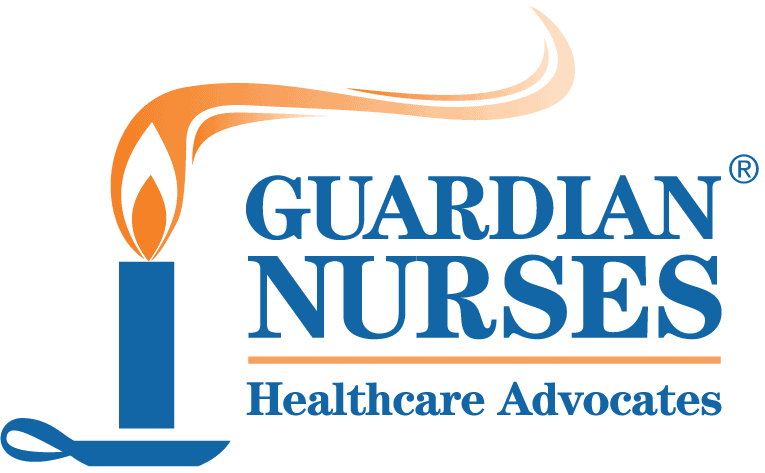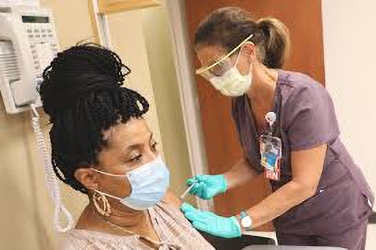Well, in a year that we’d all soon like to forget, finally we have some very good news. This past Friday, the FDA gave an Emergency Use Approval (EUA) of the BioNTech-Pfizer COVID vaccine. No doubt as you read this, vaccines are being shipped to hospitals, physician offices, clinics and pharmacies near you!
The announcement came in the middle of the worst surge of the pandemic with climbing infection rates and deaths from the virus. Medical experts have said the crisis will only worsen in the weeks ahead amidst colder weather, especially if people continue to disregard warnings to avoid unnecessary travel and large gatherings over the holidays (hint hint). Even with the vaccine, some projections show that there may be up to 539,000 patients who will die from COVID by April.
The BioNTech-Pfizer vaccine, which is a new type of vaccine, is a good story. And we all need a good story this holiday season. We hope you enjoy this issue of The Flame. May you find joy and comfort in the little things.
Happy Holidays!!!
It is good news that there are multiple vaccines being developed, but the recent Emergency Use Approval for the BioNTech-Pfizer vaccine development has a unique story.
Two German scientists, Dr. Ugur Sahin and Dr. Özlem Türeci, who are also married, founded their company, BioNTech, looking to use a wider range of technologies, including messenger RNA, (mRNA) to treat cancer.
According to an article in the New York Times, Dr. Sahin took the stage at a conference in Berlin in 2018 and made a bold prediction. Speaking to a roomful of infectious disease experts, he said his company might be able to use its so-called messenger RNA technology to rapidly develop a vaccine in the event of a global pandemic.
Fast forward to January 2020. After reading an article that convinced them that the coronavirus, at the time spreading quickly in China, would explode into a full-blown pandemic, Dr. Sahin and Dr. Türeci canceled vacations and began work on the vaccine. Their relationship with the pharmaceutical giant, Pfizer, began, perhaps serendipitously, in 2018 with the flu vaccine and now, thanks to both companies’ hard work, the COVID vaccine is available 248 days later.
New Approach to Vaccines
Without launching into an immunology lecture, mRNA vaccines are new types of vaccines to protect against infectious diseases. To trigger an immune response, many vaccines put a weakened or inactivated germ into our bodies. Not mRNA vaccines. Instead, they teach our cells how to make a protein—or even just a piece of a protein—that triggers an immune response inside our bodies. That immune response, which produces antibodies, is what protects us from getting infected if the real virus enters our bodies. Scientifically speaking, it’s very cool!
There is still much to be learned from and about the vaccine but for now, here are a few ‘facts’ from the CDC.
- COVID-19 vaccines will not give you COVID-19. None of the vaccines use the live virus that causes COVID-19. The goal for each of them–using the mRNA technology — is to teach our immune systems how to recognize and fight the coronavirus. Sometimes this process can cause symptoms, such as fever. These symptoms are normal and are a sign that the body is building immunity.
- Immunity doesn’t come immediately. It typically takes a few weeks for the body to build immunity after vaccination. That means it’s possible a person could be infected with the COVID19 virus just before or just after vaccination and get sick. This is because the vaccine has not had enough time to provide protection.
- COVID-19 vaccines will not cause you to test positive on COVID-19 viral tests. If your body develops an immune response, which is the goal of getting the vaccine, you may test positive on antibody tests–but not on viral tests, which are used to see if you have a current infection.
- Are the vaccines safe? There has been concern about the ‘speed’ with which the vaccines progressed through development. Historically, vaccines take several years but what’s important to note about the COVID vaccine is that scientists have been working solely on this 24/7 for months to find the answers. The amount of total research hours on the COVID vaccine likely adds up to what has been considered ‘normal’ development time for a vaccine. There will always be side effects (sore muscle, body aches — which mean your immune system is working, by the way) from vaccines, but there have been very few adverse reactions reported. If you’re interested in data, check out the Vaccine Adverse Event Reporting System (VAERS), a national early warning system to detect possible safety problems.
- How effective is the vaccine? Results from testing indicates that the BioNTech-Pfizer vaccine is 94-95% effective. Dr. Anthony Fauci said that it’s like the measles vaccine which “crushed” measles in the U.S.
- When will I be able to get the vaccine? The FDA typically leaves the logistics of vaccinations to individual states and local authorities. Hospitals, clinics, physician offices and pharmacies will be getting the vaccines based on the contracts they’ve signed. The first group approved has been healthcare workers and nursing home residents. Check out this article to “Find Your Place in the Vaccine Line.”
Stay Safe, Wear a Mask and Be Kind.
Spring is coming!

